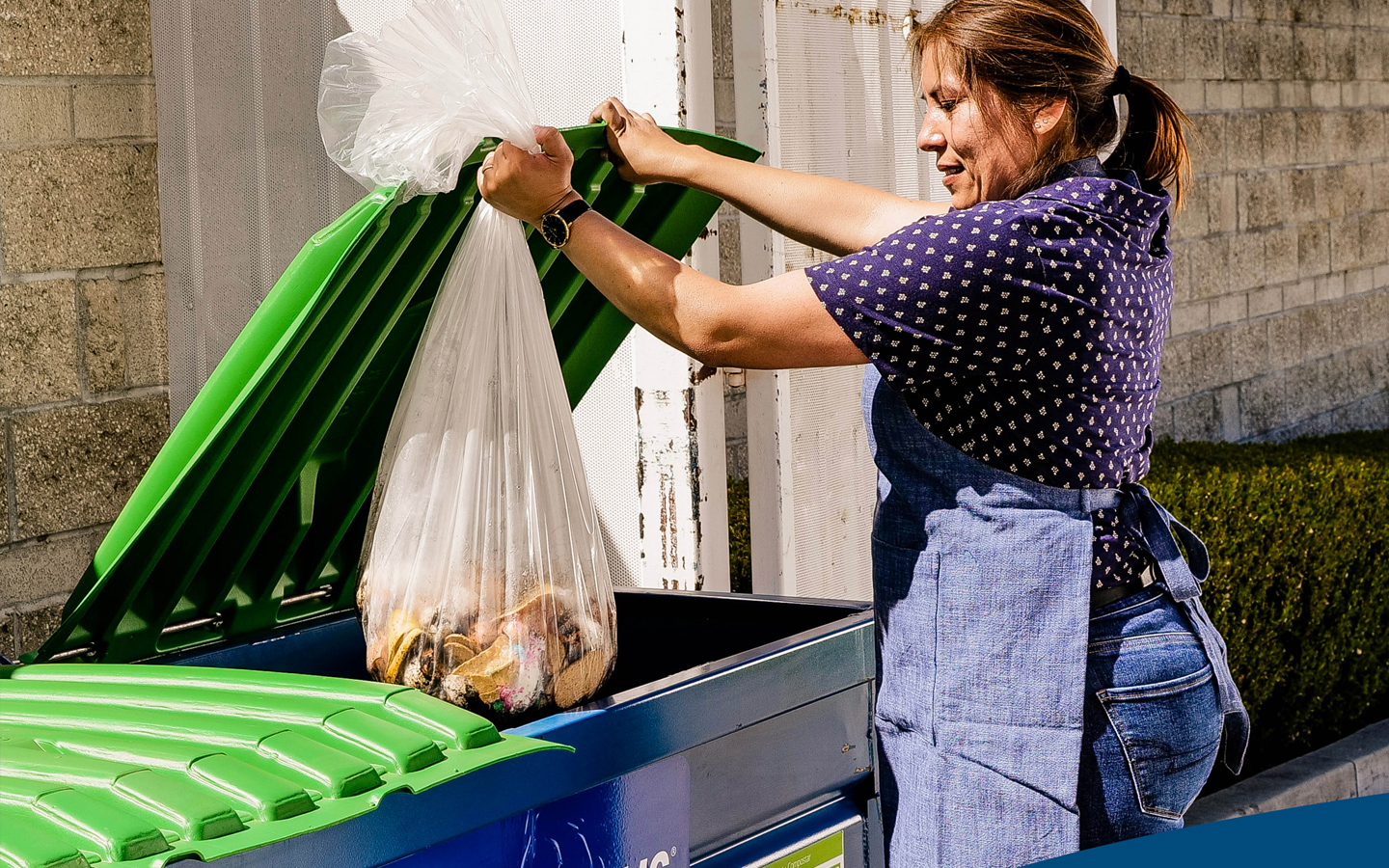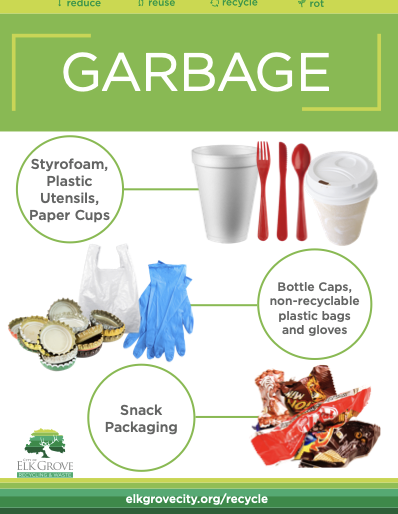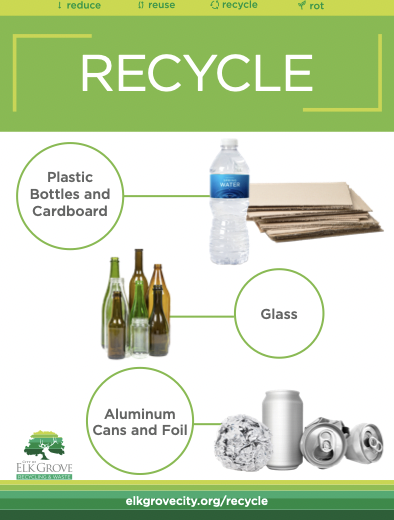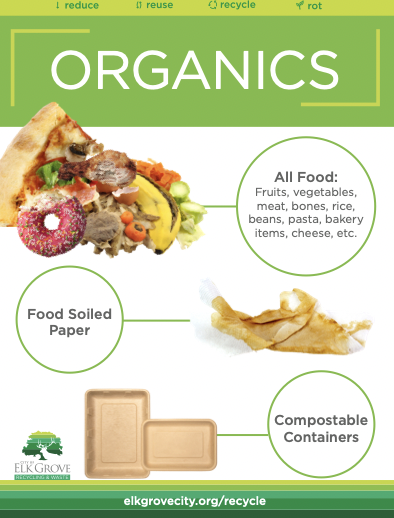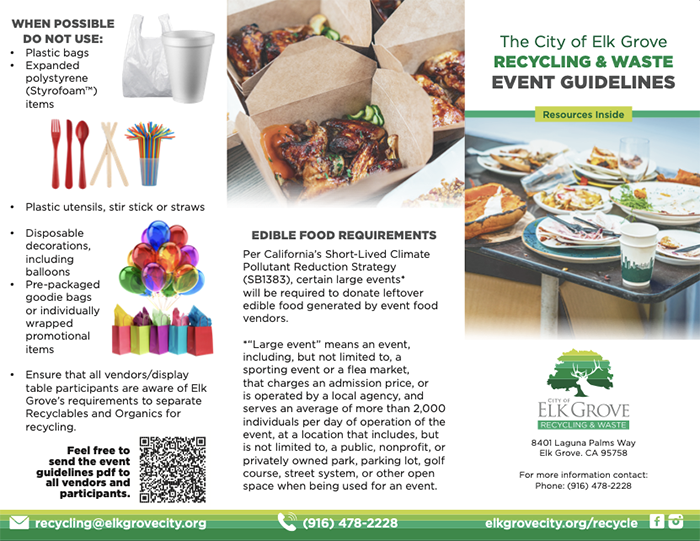The following guidelines are provided to make collecting food scraps and waste at special events easy. Coordination between event staff, guests, waste haulers, and compost facilities is important to successful recycling and composting efforts.
Provide Recycle, Organics and Garbage Containers for Events
- Subscribe to waste collection service sufficient to contain the waste generated by your event.
- Provide waste stations in convenient locations for recycle, organics, and garbage separated by event employees, vendors, and attendees. Download and print posters for recycle, organics and garbage containers.
- No standalone containers are permitted.
- Remove or cover all public litter cans throughout event area so they can’t be used.
Practice Zero Waste Purchasing
- Use reusable, recyclable or compostable containers.
- Provide condiments (e.g., sugar, ketchup, mustard, salad dressing) in bulk instead of in individual packages and servings.
- Limit single-use water bottles. Note: these bottles are prohibited at City sponsored events.
Waste Station Guidelines
Recycle, organics, and garbage containers must be placed directly next each other. If possible, provide waste station monitors to ensure proper sorting. Place containers side-by-side in same order for each station (example: blue, green, black). Place waste stations in visible, high traffic areas that do not conflict with the Fire Marshall’s requirements (i.e., entrances, exits, bathrooms, etc.). Use appropriate signage on all waste station containers. Download and print posters for recycle, organics and garbage containers.
Edible Food Requirements
Per California’s Short-Lived Climate Pollutant Reduction Strategy (SB1383), certain large events* will be required to donate leftover edible food generated by event food vendors.
* “Large event” means an event, including, but not limited to, a sporting event or a flea market, that charges an admission price, or is operated by a local agency, and serves an average of more than 2,000 individuals per day of operation of the event, at a location that includes, but is not limited to, a public, nonprofit, or privately owned park, parking lot, golf course, street system, or other open space when being used for an event.
When Possible Do Not Use:
- Plastic utensils, stir stick or straws
- Disposable decorations, including balloons
- Pre-packaged goodie bags or individually wrapped promotional items
- Ensure that all vendors/display table participants are aware of Elk Grove’s requirements to separate Recyclables and Organics for recycling.


